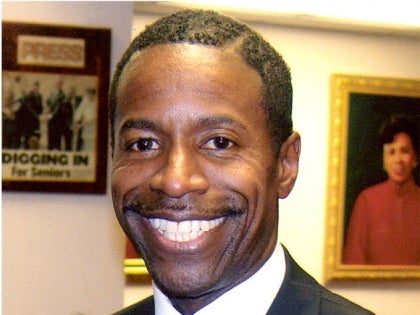
Smith Applauds Spitzer For Businesslike Approach In First Budget
Malcolm A. Smith
January 30, 2007
The first Executive Budget prepared by Governor Eliot Spitzer "takes a very businesslike approach to solving the severe problems confronting New York State," Senate Democratic Leader Malcolm A. Smith said today.
Smith compared the Governor to a Chief Executive Officer of a $120 billion firm. "In order to turn around a struggling company, you've got to demand proper planning, elimination of waste, increased efficiency and greater accountability. That's what we have in this budget."
Years of government inaction, Smith said, "have compounded the State's most serious problems," Smith said, citing New York's uncompetitive business climate, failing schools, high health care costs and exorbitant property taxes as examples.
To respond to these problems "The Governor had to take bold action, and he does with this budget," Smith said. "But he doesn't simply throw money at our problems. He has created a plan that is fiscally responsible, a plan that demands results."
Smith said he did have some concerns about some of the cuts proposed by the Governor, especially in health care. "It's still very early in the budget process, and we must drill down into the details. We will begin the process of analyzing the numbers and the proposals, to determine exactly what they mean for our constituents."
Smith said he wanted to ensure that medically-underserved areas are not forced to endure additional cuts. However, he said he does recognize that there is waste and inefficiency within the State's health care system, which, if eliminated, "Could help us provide insurance to the State's uninsured, and help us improve the quality of health care for all New Yorkers."
Smith did praise the Governor's $6 billion property tax relief proposal, targeted, like the Senate Democrats' plan, at middle income families. "This is an investment that will make the State a better place to live, to raise a family and start a business," he said.
New York would also benefit, Smith said, by the Governor's commitment to improving the State's educational system and to finally addressing the longstanding Campaign for Fiscal Equity (CFE) lawsuit, which found the State had underfunded many high-needs districts.
"The Governor clearly understands the importance of a strong school system and the positive impact it has on all aspects of our society," Smith said. "By proposing a record increase in school aid, and targeting $7 billion over four years to high-needs districts, the Governor has made his commitment clear. These resources will provide benefits for many years to come."
More importantly though, the Governor's plan finally addresses the inequitable school aid distribution formula, Smith said. "This is a long -term approach that will solve the problem that instigated the CFE lawsuit in the first place."
While the budget provides record increases for school aid, it also requires greater accountability from our schools. This approach is also taken with Upstate cities scheduled to receive increased economic aid. "They will get the funds they need," Smith said, but they will also have to implement multi-year performance plans, and show positive results. This combination will help "jumpstart local economies that have been struggling for years," Smith said.
The budget would also help the State's economy by investing in stem cell and nanotechnology endeavors. Smith said he was also pleased with the appointment of an Upstate co-Chair for the Empire State Development Corporation who will focus on revitalizing the Upstate economy.
Overall, Smith said the Governor's first budget "has offered a new paradigm of efficiency and accountability. But of course, there will be adjustments made where necessary. We're going to work together to move New York State back into a national and international leadership role. The public has spoken, message delivered, message received and today, we are taking action."
Share this Article or Press Release
Newsroom
Go to NewsroomTHANKSGIVING ESSAYS AND CONTRIBUTIONS
December 2, 2014
Cycle With the Senator Saturdays in August
August 5, 2014

“Woman of Distinction" 2014 Honoree Adjoa Gzifa
July 11, 2014

Career Day at PS 48 in Jamaica
July 11, 2014
